
Calcium Deficiency in Elderly: All You Need To Know
When it comes to calcium deficiency in elderly, osteoporosis often comes to mind, and rightly so. Of course, this mentality stems from a correct perception, since approximately 99 percent of this mineral is used to build and maintain strong and healthy teeth and bones. However, calcium also plays countless other roles in the body: from transmitting nerve messages to affecting heart function. Accordingly, calcium deficiency, also known as hypocalcemia, can have wide-ranging consequences for a person’s health.
Calcium deficiency in seniors will manifest itself in various ways. For example, it may be hard to believe, but there is even a relationship between some of their neuroses – such as anxiety, irritability and depression in the elderly – and hypocalcemia. Because this mineral plays an effective role in the secretion of melatonin, the activity of neurotransmitters, pain relief, and so on. Without enough calcium in the body, a person suffers from insomnia, extreme fatigue, mood swings, and many other disorders.
For this reason, in this article from humanhealthmag, we are going to learn more about this condition and discuss the causes, complications, and treatments of hypocalcemia; don’t miss reading it. Because getting to know the symptoms of calcium deficiency, its causes, and rapid treatment of calcium deficiency can prevent many dangers for the elderly.
What Is Calcium?
Calcium is a nutrient that all living things, including humans, need. It is an abundant mineral in the body and is essential for bone health. Humans need calcium to build and maintain strong bones. Calcium plays a role in strengthening bones and teeth and in their formation. In fact, most of the calcium in the human body is stored in bones and teeth. As bones break down and rebuild themselves during their normal process, calcium helps create new bone.
Getting enough calcium is beneficial for maintaining bones throughout life, especially during childhood, when bones are still growing. It is also important during the early years of growth, and for repairing damaged or broken bones. With age and calcium deficiency in elderly, older bones become more fragile and break easily, which is a sign of osteoporosis.
Role of Calcium in the Body
Calcium has many activities in the body, including:
- It regulates the heartbeat
- It is effective in the body’s iron metabolism
- It involved in one of the stages of blood clotting
- It plays a fundamental role in regulating the body’s nervous system, especially in the transmission of nerve impulses
- It is essential for muscle contraction, and movement is not possible without calcium
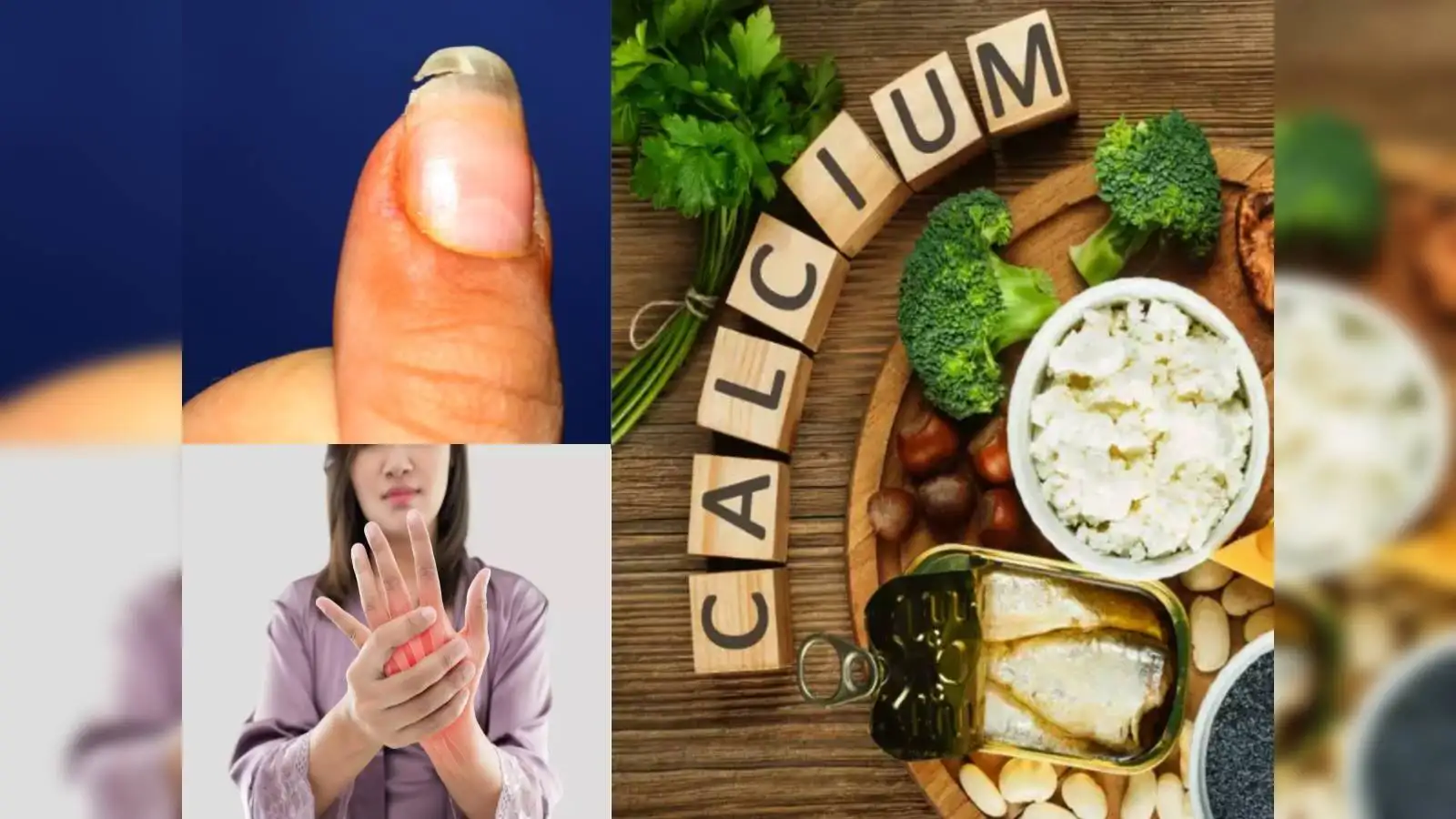
Benefits of Normal Calcium intake for Seniors
In general, having enough calcium means that the body has the power to rebuild bones. This mineral guarantees the health of teeth. Therefore, it will prevent them from decaying and the elderly from contracting various infections and gum diseases that can cause general inflammation of the body.
Calcium helps blood clotting. With its role in conducting electricity and contracting muscles in the body, it has an effect on regulating the heart rate and preventing cardiac arrhythmia. Or it can reduce the likelihood of muscle cramps in the elderly. In addition, we cannot ignore the effects of this nutrient on the body’s chemical processes, such as the function of some hormones. Its role in preventing memory disorders, confusion, lightheadedness, etc. in the elderly cannot be ignored.
Normal Calcium Levels in People Over 65
Like protein intake for elderly per day, gender and age are two important factors that determine how much calcium each person needs per day. Of course, you should also consider that simply including food sources rich in this mineral in your daily meals is not enough; the body needs vitamin D to absorb calcium, otherwise a high percentage of what it receives from food will be excreted by the kidneys and, by depositing in them, will soon cause kidney failure in the elderly.
The relationship between calcium deficiency in elderly and a decrease in magnesium levels in the body is also two-way, because magnesium also helps absorb this essential substance. With all this, below is a table of daily calcium intake for the elderly and all ages so that you know how much calcium people over 65 need to receive throughout the day.
How much calcium needed per day?
| Age Range | Men | Women |
| Birth to 6 months | 200 mg | 200 mg |
| 7 to 12 months | 260 mg | 260 mg |
| 1 to 3 years | 700 mg | 700 mg |
| 700 mg | 1000 mg | 1000 mg |
| 9 to 13 years | 1,300 mg | 1,300 mg |
| 14–18 years | 1,300 mg | 1,300 mg |
| 19–50 years | 1,000 mg | 1,000 mg |
| 51–70 years | 1,000 mg | 1,200 mg |
| 70+ years | 1,200 mg | 1,200 mg |
| Pregnancy | – | 1,300 mg |
| Lactation | – | 1,300 mg |
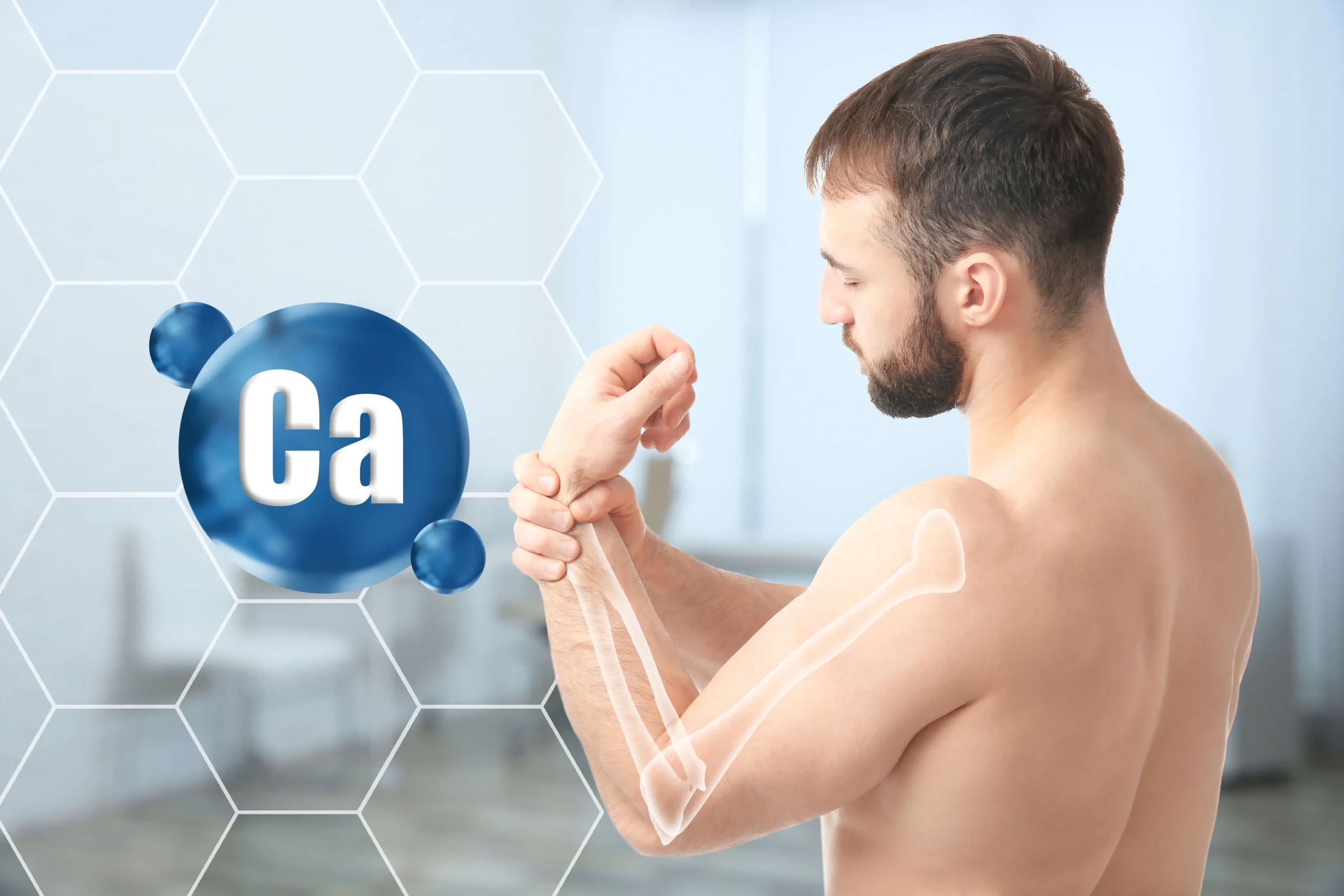
Causes of Calcium Deficiency in the Elderly
What causes low calcium levels in the elderly? Calcium deficiency that occurred in old age can be the result of abuse of this mineral from years ago. Especially if the person smoked and drank alcohol, did not pay attention to physical activity, and did not take nutritional recommendations seriously. However, increasing age will automatically reduce the efficiency of the body in absorbing calcium, causing a lack of this mineral. Many people struggle with malnutrition in old age or suffer from diseases such as celiac disease, inflammatory bowel disease, liver and kidney problems, diabetes, etc., each of which can disrupt the calcium balance in the body. Other causes of hypocalcemia in the elderly include:
- Cancer is one of the diseases that cause calcium deficiency in elderly. Cancer severely affects the elderly’s appetite and causes a decrease in calcium intake through the consumption of its dietary sources, resulting in hypocalcemia
- Some drugs used for chemotherapy or radiation therapy to the head and neck area increase the risk of hypocalcemia
- Lifestyle conditions or habits may lead to low calcium levels in the elderly and women
- Long-term use of certain medications, such as chemotherapy drugs, some antibiotics such as tetracycline, diuretics, beta-blockers, antacids, and corticosteroids
- Rheumatoid arthritis
- Calcium deficiency is more common in older women
- Thyroid disorders are common conditions in older people that can cause low calcium in the body
- Pancreatitis
- kidney failure
- Phosphate deficiency
- Vitamin D deficiency
- Magnesium overdose
- Exposure to mercury
- Long-term use of laxatives
- Excessive consumption of caffeine, soft drinks or alcohol
- Parathyroid hormone (PTH) deficiency
- Certain surgical procedures, including gastrectomy
- Bulimia, anorexia and some other eating disorders
- People who consume too much protein or sodium may excrete calcium.
- Some diseases, such as celiac disease, inflammatory bowel disease, Crohn’s disease, and some other digestive diseases
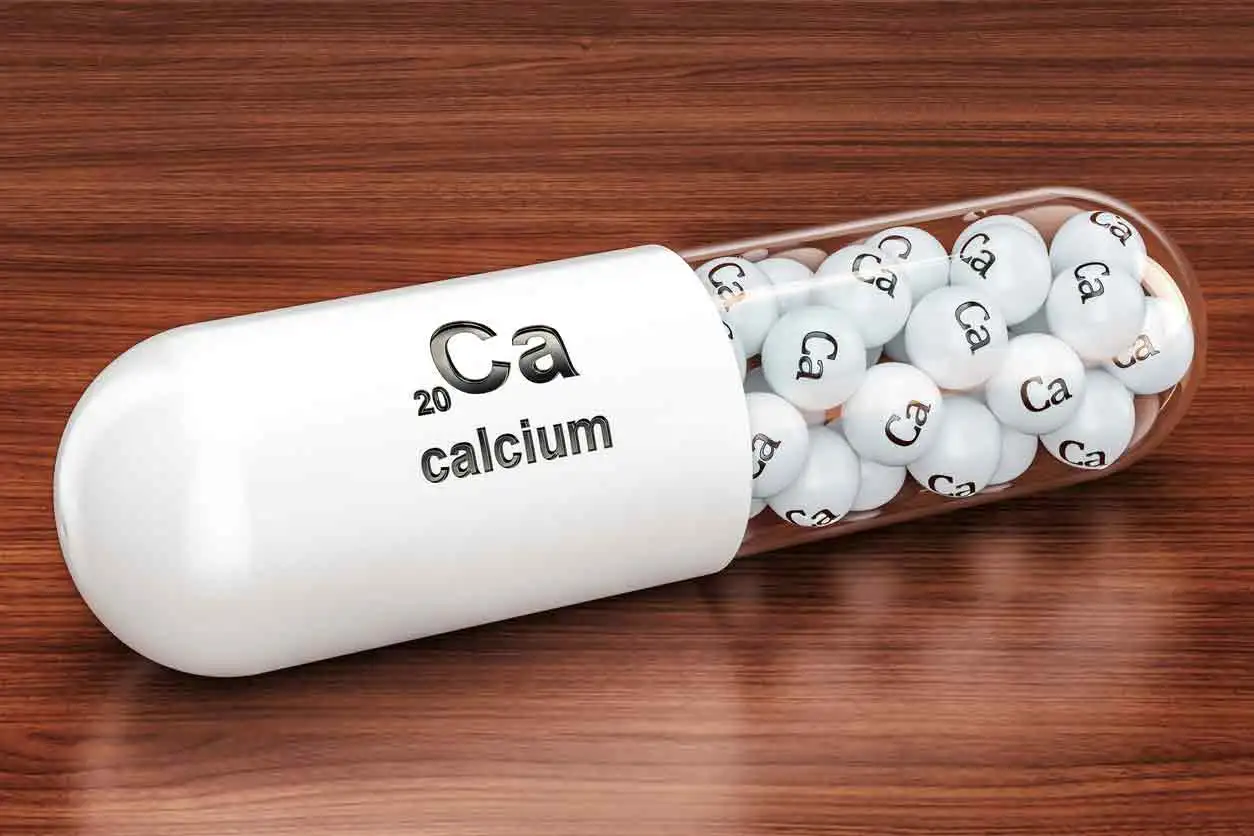
Effects of Calcium Deficiency on the Health of the Elderly
What happens when a senior have calcium deficiency? Undoubtedly, one of the most important consequences of calcium deficiency in elderly is osteoporosis. The body cannot perform certain functions without this mineral, so if there is not enough calcium in the blood, it will take it from bone or even dental reserves. This is how hypocalcemia reduces bone density and makes it brittle, and osteoporosis in old age will cause hypocalcemia.
In addition to this mutual relationship, the effect of calcium on the proper functioning of the immune system cannot be ignored. While this mineral plays a role in the process of transporting white blood cells and eliminating risk factors, its deficiency makes elderly people more vulnerable to various diseases. Other complications of hypocalcemia include the destructive effects of calcium deficiency on the brain of the elderly.
This mineral is responsible for transmitting messages from the brain to the organs and vice versa, through the nerves. Thus, many neurological disorders in the elderly that occur due to calcium deficiency cause a decrease in brain power and an increase in the likelihood of developing dementia and Alzheimer’s in old age. Even the relationship between calcium deficiency and dizziness in the elderly or the reason they suffer from tremors, Parkinson’s, etc. is related to this issue.
What Could Happen if a Senior Person Has a Severe Calcium Deficiency?
Hypocalcemia is often a silent condition, because the body uses its own bone reserves and does not show signs of calcium deficiency. However, some elderly people are more likely to suffer from this condition for the following reasons:
- Elderly people who do not get enough calcium from their diet
- Elderly people with a family history of this condition or osteoporosis
- People who suffer from some underlying diseases in old age or are forced to take some medications that reduce blood calcium levels
- Elderly people who have experienced bone fractures
And…
Accordingly, families and caregivers are advised to take regular medical check-ups of the elderly seriously so that calcium deficiency can be diagnosed as early as possible. Otherwise – and if some secondary symptoms are also ignored – hypocalcemia will manifest itself in its severe form. In this situation, the blood calcium level has dropped from the normal range of 2.13 to 2.55 mmol/L to 1.9 mmol/L or less, and the elderly person faces the risk of memory loss, hallucinations, seizures, arrhythmia, cardiac arrest, etc.
Severe calcium deficiency is considered a medical emergency and must be treated with hospitalization and intravenous administration of this mineral as a rapid treatment for calcium deficiency in the elderly.
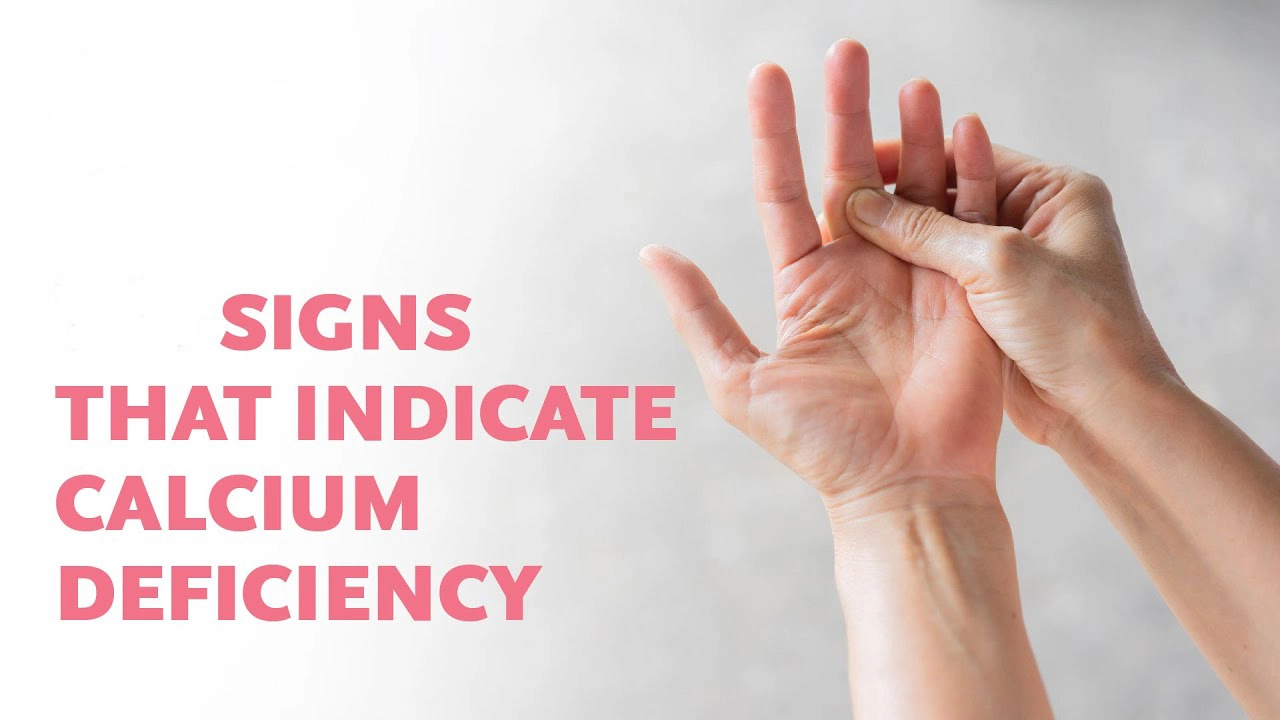
How Do You Diagnose Calcium Deficiency in Seniors?
As we said, calcium plays an important role in blood clotting, heart rate control, and muscle relaxation and contraction. In fact, calcium plays a role in various body functions, and it cannot be said that calcium deficiency in elderly simply causes chronic diseases such as osteoporosis. This is because joint problems and even cardiovascular diseases are also complications of calcium deficiency.
If you want to discover the lack of this essential mineral before it gets worse, we recommend that you pay more attention to some of the symptoms in your body. Some of these symptoms have nothing to do with bones. The most common symptoms of calcium deficiency in the elderly are as follows:
- Cramps or muscle cramps
- Insomnia or frequent waking up
- Low energy
- Loss of balance in elderly
- Dry skin
- Caries or other dental infections
- Hair loss
- Brittle nails
- Pain in joints and bones
- Weak bones and teeth
- Muscle spasms and twitching
- Numbness and tingling in the limbs
- High blood pressure
- Menstrual cramps in women
- Any symptoms such as forgetfulness, dementia, memory loss, or lack of concentration may be due to calcium deficiency in elderly
- Neurological problems
- Extreme fatigue
- Trouble swallowing in the elderly
In addition, even leg pain and calcium deficiency in the elderly can be related and indicate osteoporosis in people over 65 years of age. So, if you see one or more of these symptoms, see a doctor to check the possibility of your dear elderly suffering from hypocalcemia.
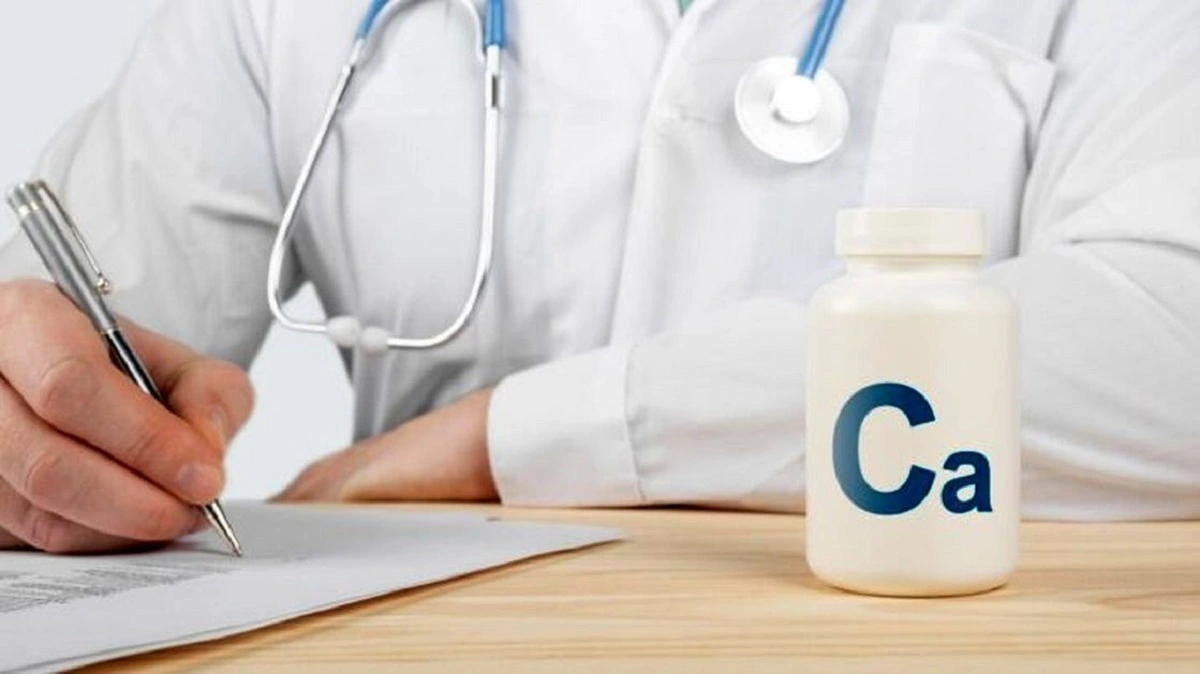
Treatment of Calcium Deficiency in Elderly
Like any other health problem that affects older people, the treatment of hypocalcemia largely depends on its root cause. For example, if osteoporosis has caused this condition, it should be treated immediately so that the calcium deficiency can be improved. In general, however, lifestyle modification, a suitable diet for the elderly, foods for bone health in seniors, and the use of some supplements are among the methods used for this purpose.
Healthy Foods High in Calcium
Because foods can provide a range of nutrients and other substances essential to our health, nutritional needs should be met primarily through food. Older adults can get calcium from a wide range of foods and beverages. Remember, it’s never too late to start eating calcium-rich foods, as you can improve your health and may even enjoy trying new foods and diversify your diet. But which foods are rich sources of calcium?
- Grains and cereals
- Sardines and salmon
- Corn flour and corn tortillas
- Fortified fruit juices
- Many fortified breakfast cereals
- Dairy products in general (yogurt, milk, cheese, etc.)
- Fortified dairy alternatives, such as soy milk
- Nuts and seeds, especially almonds, sesame seeds, and chia seeds
- Green leafy vegetables, such as broccoli, turnip greens, and kale
- Potatoes
- Pumpkin
- Cabbage
- Sesame seeds
- Figs
- Chia seeds
- Oranges or dried fruits
- Fish
- And, etc.
Of course, there is little that can compare to dairy products when it comes to providing calcium to the body. However, some older people may not be able to consume dairy products, especially milk, due to lactose intolerance. In such cases, the best way is to use lactose-free products or include plant-based dairy alternatives in one’s diet. For example, fortified soy milk, almond milk, etc. are calcium-rich drinks for the elderly.
In addition, it is also very important to take vitamins that help increase calcium in the elderly body: spend time in the mild sunlight every day to absorb vitamin D or eat bell peppers, strawberries, etc. to get vitamins C and K.
An important point is that some dark green vegetables such as spinach contain calcium. However, they also contain high levels of oxalic acid. According to studies, oxalic acid reduces the body’s ability to absorb calcium.
Supplements
Another way to treat hypocalcemia in the elderly is to use supplements such as calcium carbonate (which has the highest amount of calcium), calcium phosphate (which is easily absorbed and does not cause constipation, high fiber foods for elderly constipation), and calcium citrate (which is easily absorbed), of course, with the doctor’s prescription! He/She is the one who determines what type of supplements the elderly should take by assessing the cause of the calcium deficiency and how much of this mineral will be needed to compensate for it.
Important: Calcium interacts with antibiotics, and it is best to take calcium supplements separately from some antibiotics. Avoid taking supplements while taking calcium channel blockers (such as nimodipine and amlodipine, verapamil, and diltiazem), which are common types of drugs used to lower blood pressure.

Herbal Medicines
Plant sources that can greatly help treat calcium deficiency in elderly include almonds, sesame, spinach, dried fruits, oranges, onions, peas, and watercress. You may be interested to know that some medicinal herbs have more calcium than others, and regular consumption of their tea is a great way to treat calcium deficiency in seniors. These medicinal herbs include the following:
- Nettle
- Mint
- Green tea
- Mountain rosehip
Human Health Magazine’s Recommendations for Preventing and Treating Calcium Deficiency in Elderly
- Dehydration in the elderly and calcium deficiency can be indirectly related, because dehydration may affect intestinal function and, as a result, calcium absorption. Always make water available to the elderly under any circumstances
- Although supplement use is not contraindicated for the elderly with calcium deficiency, it should not be done without consulting a doctor or in an excessive manner. In that case, the side effects of excessive calcium consumption, including kidney stones, will affect the individual
- Among the foods that are harmful to the elderly with calcium deficiency, we can mention foods that are too salty (The maximum daily salt intake for seniors, should be less than 3 grams), sweet, and fatty. Foods rich in fiber and oxalic acid, coffee, and animal proteins should also be consumed in moderation
- The effect of fasting in the elderly on calcium deficiency is undeniable. This religious obligation can aggravate hypocalcemia by reducing the intake of this mineral through food sources and increasing its excretion. Therefore, be sure to consult a doctor in this regard
- Since the body takes more of its calcium reserves during the night, it is better to give compensatory supplements to the elderly along with dinner
- The length of treatment for hypocalcemia depends on its severity, what foods the elderly can eat, and their medications. Be patient and watchful during this process
- Remember that excessive dairy consumption can have the opposite effect
- Encourage your elderly loved one to quit smoking and drinking alcohol. Encourage them to get out in the sun and be physically active.
Concluding Remarks
When talking about calcium, everyone thinks of bones and osteoporosis. Calcium is an essential and necessary substance for bone health; but its effect does not end there. Dental problems, hair loss, dry skin and brittle teeth, as well as insomnia and some other issues can also be caused by calcium deficiency in elderly.
It is better to see a doctor to check the amount of calcium in the body. In general, to provide calcium to the body, increase the consumption of dried fruits, dairy products, broccoli, cabbage, spinach juice; orange juice, rice milk, fish and eggs in your diet. Of course, you can also take calcium supplements. But it is better to first meet your body’s needs naturally and through food.

Frequently Asked Questions
When to see a doctor for calcium deficiency in old age?
In general, it is important to get a serious medical check-up for people over 65 years old; especially if they have a history of bone fractures, suffer from chronic diseases or take medications that reduce calcium. However, it is necessary to see a doctor if some symptoms of hypocalcemia appear.
What diseases does calcium deficiency cause in the elderly?
Osteoporosis, Parkinson’s, heart failure, dementia, etc.
Does calcium deficiency cause tremors in the elderly?
Yes; Calcium deficiency can disrupt nerve function and cause tremors.
Should calcium tablets be taken in the morning or at night?
Night is a better time for this.
How long does it take to cure calcium deficiency in elderly people?
This depends on the severity of the person’s hypocalcemia and other factors such as their diet and medication.
Is it dangerous to take calcium and vitamin D at the same time?
No; In many cases, it can even be beneficial, as vitamin D is essential for calcium absorption.
